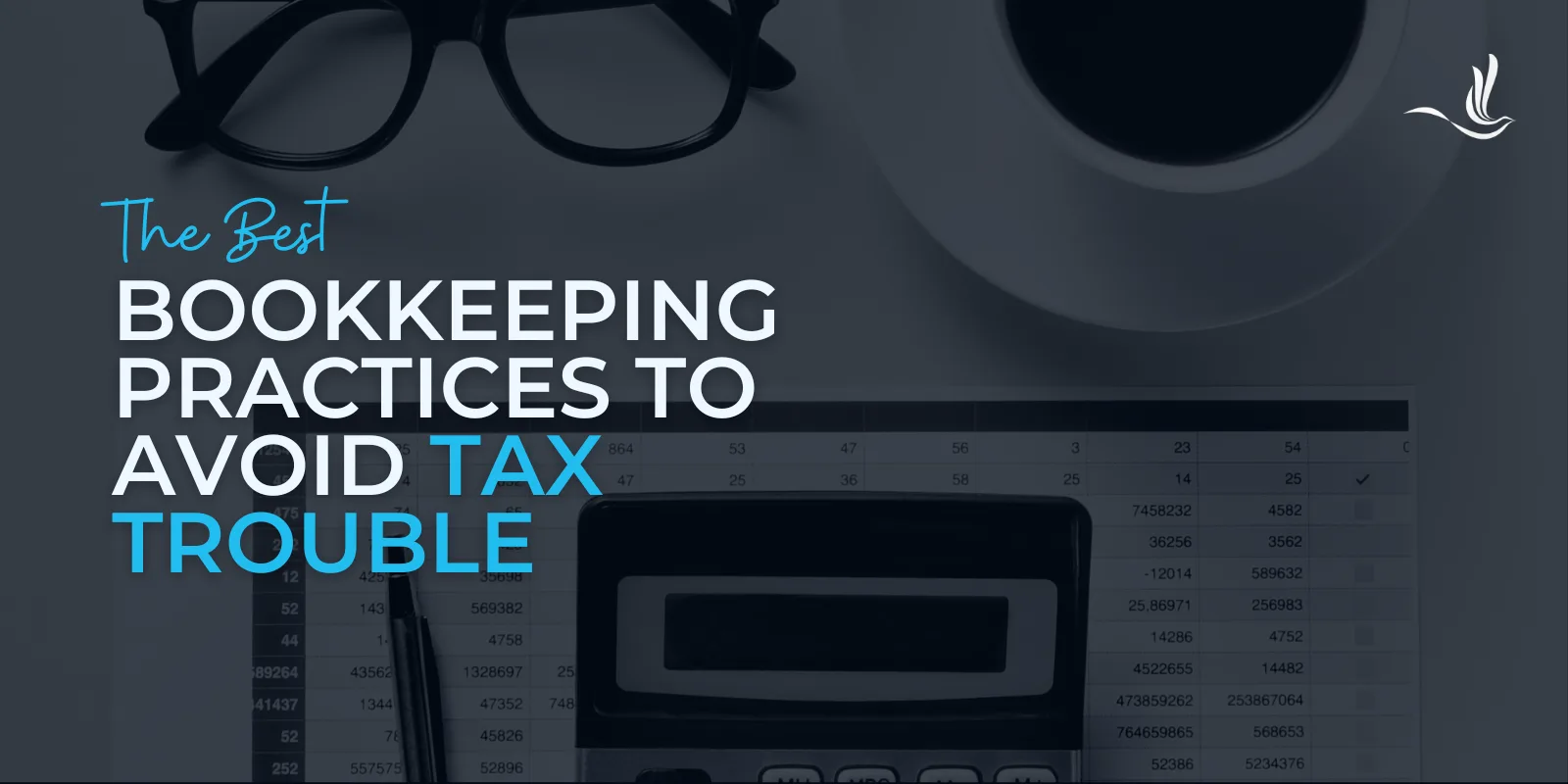The IRS, like many organizations, faced significant challenges during the COVID-19 pandemic. It had to adapt to new working conditions, which led to delays in processing paperwork, including tax returns, and difficulties in responding to taxpayer inquiries.
During this time, when a taxpayer could reach someone at the IRS, they were often told that due to the extraordinary circumstances, the IRS should be excused from meeting certain deadlines required by law.
Now that the pandemic has largely subsided, the IRS has resumed its normal operations, albeit with some changes, such as increased work-from-home arrangements for its employees, so they can no longer pick up or respond to correspondence mailed to their IRS offices.
Importantly, the IRS has returned to its standard practice of holding taxpayers accountable for meeting deadlines. The policy of denying certain taxpayer rights when a deadline is missed, even by a single day, is once again in effect. As was the case before COVID-19, taxpayer requests for exceptions due to extraordinary circumstances are rarely granted by the IRS. The justifications the IRS cited for its own noncompliance during the pandemic do not seem to apply to taxpayers, even when the taxpayer is making the same request, for the same action, during the same COVID-19 period.
This brings us to the recent Moy v. United States, Case No. 23-cv-03151-PCP (N.D. Calif. 2024), case. This case involves a taxpayer who may have lost their tax refund due to the IRS’s delayed response during the COVID-19 pandemic and their own delay during that same period.
Facts & Procedural History
The IRS assessed $32,507.30 in tax in May 2011. This appears to have been a substitute for return (“SFR”), as the court case notes that the taxpayer did not file her 2008 tax return.
The taxpayer paid $20,447 in foreign taxes to the United Kingdom in 2008. The IRS’s assessment failed to incorporate a foreign tax credit for that payment in computing her U.S. income taxes. Since this was a tax credit, the taxpayer was probably owed a $20,447 tax refund by the IRS.
The taxpayer filed a tax refund claim with the IRS in April 2018. On August 1, 2018, the IRS denied the claim, asserting that it was time-barred. As explained below, it appears that the IRS was wrong in reaching this determination.
The taxpayer filed a protest letter with the IRS Appeals Office in November 2019. The IRS Appeals Office responded three times (in December 2019, February 2020, and March 2020), stating each time that it was looking into the matter and would respond within 60 days.
In January 2021, the IRS Appeals Office affirmed the decision and dismissed her appeal, stating that the taxpayer had failed to file a lawsuit within two years of the August 1, 2018 claim denial.
On June 27, 2023, the taxpayer filed suit against the United States for a refund under Section 7422. The United States moved to dismiss, arguing that because the taxpayer’s complaint was not filed within the two-year statute of limitations established by Section 6532(a)(1), the United States maintained sovereign immunity from suit.
In court, the taxpayer argued that she was justifiably misled by the IRS Appeals Office’s letters in December 2019, February 2020, and March 2020, each stating that the office would respond to her claim within 60 days. The court sided with the IRS, as the time period for bringing suit had lapsed. The two-year period to file suit appears to have expired August 1, 2020. This was during the height of the COVID-19 restrictions and lockdowns, even though the court opinion does not note this fact.
The Refund Filing & Payment Deadlines
There are a number of rules that explain how a taxpayer can timely file a refund claim and be fully entitled to the tax refund (i.e., the taxpayer is correct as to the underlying tax position), yet the IRS can delay the processing of the refund claim, and the taxpayer can be unable to recover the tax refund due to the delay. These rules can be grouped into those for the time for the taxpayer to file a refund claim and those for the time for paying a refund claim to the taxpayer.
The Time For Filing a Refund Claim
The facts set out in the court’s opinion are not clear as to some details. It appears that the IRS assessed the tax for the 2008 year in May 2011. The IRS’s assessment seems timely, given that it was made within three years of the tax return due date (and since a tax return was not filed, there was no statute that started running).
The May 2011 date would start the time period for the taxpayer to file a refund claim. The taxpayer generally has three years from the date of the assessment or two years from the date of payment, whichever is later, to file a refund claim. This is the general rule in Section 6511(a). This would put the refund claim due date at May 2014.
However, there is a special rule for foreign tax credits set out in Section 6511(d)(3)(A). This rule provides a ten-year period for the taxpayer to file a refund claim for foreign tax credits, starting from the due date of the original return. This would put the due date to file the refund claim at April 2019. The taxpayer filed their refund claim within this time. Thus, it appears that the refund claim was timely filed and that the IRS’s position may have been incorrect at both the IRS service center level and the IRS Appeals level.
The Time for Paying a Refund
Even though the claim for refund was timely filed, according to the court opinion, the IRS Office of Appeals denied the claim due to the time period for bringing suit. The reason why this can happen is that the time for the taxpayer to file a refund claim differs from the time for the IRS to pay a tax refund.
Generally, the taxpayer has two years from the date a refund claim is denied to file suit in court to recover the overpayment. The filing of the suit within this period holds open the ability for the IRS to actually pay the refund after two years. This is set out in Section 6532(a)(1).
Thus, as in this case, where the taxpayer timely filed her refund claim and the IRS did not act on the claim within two years, the IRS is barred from paying the refund. So, even if IRS Appeals had agreed with the taxpayer as to the timeliness of the refund claim filing (which it might have), IRS Appeals could not force the refund.
Deadlines for Filing a Tax Refund Claim
When the IRS files a Substitute for Return (SFR) because a taxpayer hasn’t filed their own return, it’s important for the taxpayer to understand the deadlines for filing a refund claim. These deadlines, outlined in Section 6511 of the Internal Revenue Code, can be complex and vary depending on the taxpayer’s specific circumstances.
General Deadlines:
Three-Year Rule: Generally, a taxpayer must file a refund claim within three years from the date the return was filed or due (whichever is later).
Two-Year Rule: If no return was filed, the refund claim must be filed within two years from the date the tax was paid.
Special Deadlines and Exceptions:
Seven-Year Period for Bad Debts and Worthless Securities: If the refund claim relates to the deductibility of a bad debt under Section 166 or a loss from a worthless security under Section 165(g), the deadline is seven years from the due date of the return for the year the claim relates to.
Special Period for Net Operating Loss or Capital Loss Carrybacks: For refund claims relating to a net operating loss carryback or a capital loss carryback, the deadline is three years after the due date (including extensions) for filing the return for the year in which the loss was incurred.
Ten-Year Period for Foreign Tax Credits: If the refund claim relates to an overpayment attributable to foreign taxes paid or accrued, the deadline is ten years from the due date for filing the return for the year in which the foreign taxes were actually paid or accrued.
Special Period for Certain Credit Carrybacks: For refund claims relating to credit carrybacks, the deadline is three years after the due date (including extensions) for filing the return for the year in which the credit arose.
Self-Employment Tax Deadlines: Special deadlines apply to refund claims related to self-employment taxes in certain cases involving agreements under Section 218 of the Social Security Act or Tax Court determinations.
Exceptions Due to Disability: The running of the period of limitations may be suspended during periods when an individual is unable to manage their financial affairs due to a medically determinable physical or mental impairment.
Potential Remedies for Unpaid Refund Claims
Taxpayers who find themselves in this situation may have some remedies available, but they will require effort and may not always be easy to obtain.
Extending the Time for Paying a Refund
Section 6532(a)(2) provides that the period for filing suit can be extended by agreement of the parties. The IRS has Form 907, Agreement to Extend the Time to Bring Suit, for this purpose. The taxpayer and IRS can sign this form and agree to extend the time for bringing suit. This holds open the time period for the IRS to pay a refund.
The challenge with this remedy is twofold: (1) there is often no one at the IRS who has authority to sign the form, as the deadline may pass before the case is even assigned to an appeals officer; and (2) taxpayers often do not know that the form needs to be executed by both parties.
Even in a case like the present one that is assigned to IRS Appeals, the appeals office does not alert taxpayers to the need to execute such a form. Many situations like this could potentially be remedied by IRS Appeals issuing a standard form letter with Form 907 attached for any refund claim they are assigned. The IRS has no policy or practice of extending this courtesy to avoid this type of unfair situation. The burden is on taxpayers to know of this form, its applicability, and to actively seek out someone at the IRS to sign the form.
Wait for Collections, Pursue CDP Hearing
Another possible remedy is to wait for the IRS to take enforced collection actions and file a Collection Due Process (“CDP”) hearing request to challenge the underlying liability.
A CDP hearing is an administrative hearing that a taxpayer can request when the IRS files a Notice of Federal Tax Lien or before the IRS levies on the taxpayer’s property.
During the CDP hearing, the taxpayer can raise the issue of the underlying tax liability if they did not otherwise have a prior opportunity to dispute it.
This may preserve the right to a refund by preserving judicial review. If the taxpayer does not agree with the outcome of the CDP hearing, they can petition the U.S. Tax Court for review. This process preserves a judicial remedy and may provide an opportunity to dispute the denial of the refund claim.
Argue for Equitable Tolling
Equitable tolling is a legal doctrine that allows a court to extend a statute of limitations if the taxpayer was prevented from filing suit due to extraordinary circumstances beyond their control or reasonable error. Taxpayers can argue for equitable tolling of the two-year deadline to file suit.
To pursue this remedy, the taxpayer would need to raise it in a CDP Hearing (as noted above) or file suit against the IRS in a U.S. District Court or the U.S. Court of Federal Claims and present evidence demonstrating that the delay in filing was due to circumstances beyond their control, such as potentially misleading communications from the IRS.
If successful, this could result in a refund being paid by the IRS after the expiration of the two-year period. As noted by the court in this case, court cases have often denied this remedy. Thus, this may not be a viable solution for many taxpayers.
Try to Zero Out the Tax With No Cash Back
If the taxpayer is not able to file a CDP hearing request or does not want to wait for the potentially lengthy delay for the IRS to collect, they can file an audit reconsideration request, submit an offer in compromise doubt as to liability, and/or, at any stage where there is an assigned IRS employee, encourage the IRS to exercise its discretion to at least zero out the tax. This differs from issuing a refund in the sense that the taxpayer is not getting money back; they are just reducing the amount owed to zero. They can also seek to have the penalties removed or reduced.
The IRS has authority to do this under Section 6404(a). Section 6404 allows the IRS to abate the unpaid portion of an assessment that is excessive in amount or erroneously or illegally assessed. This involves the taxpayer trying to correct an IRS error using rules that are not mandatory for the IRS to apply. The taxpayer is relying on the IRS exercising its discretion in their favor voluntarily. It’s important to note that this remedy can involve a significant delay, as the IRS may prioritize other matters. Taxpayers pursuing this remedy should be prepared for a potentially lengthy response time from the IRS.
The Takeaway
This case serves as a reminder for taxpayers seeking refunds from the IRS that they need to act timely, even if the IRS experiences delays. Despite the challenges posed by the COVID-19 pandemic and potential miscommunications from the IRS, taxpayers must adhere to the strict two-year statute of limitations for filing a lawsuit after a refund claim is denied.
Taxpayers should carefully track the timeline of their refund claims and any correspondence with the IRS and act timely where necessary, regardless of any ongoing communications with the IRS. Taxpayers must remain vigilant in protecting their rights and complying with deadlines, even in the face of unprecedented challenges such as those posed by COVID-19.
Watch Our Free On-Demand Webinar
In 40 minutes, we’ll teach you how to survive an IRS audit.
We’ll explain how the IRS conducts audits and how to manage and close the audit.





























